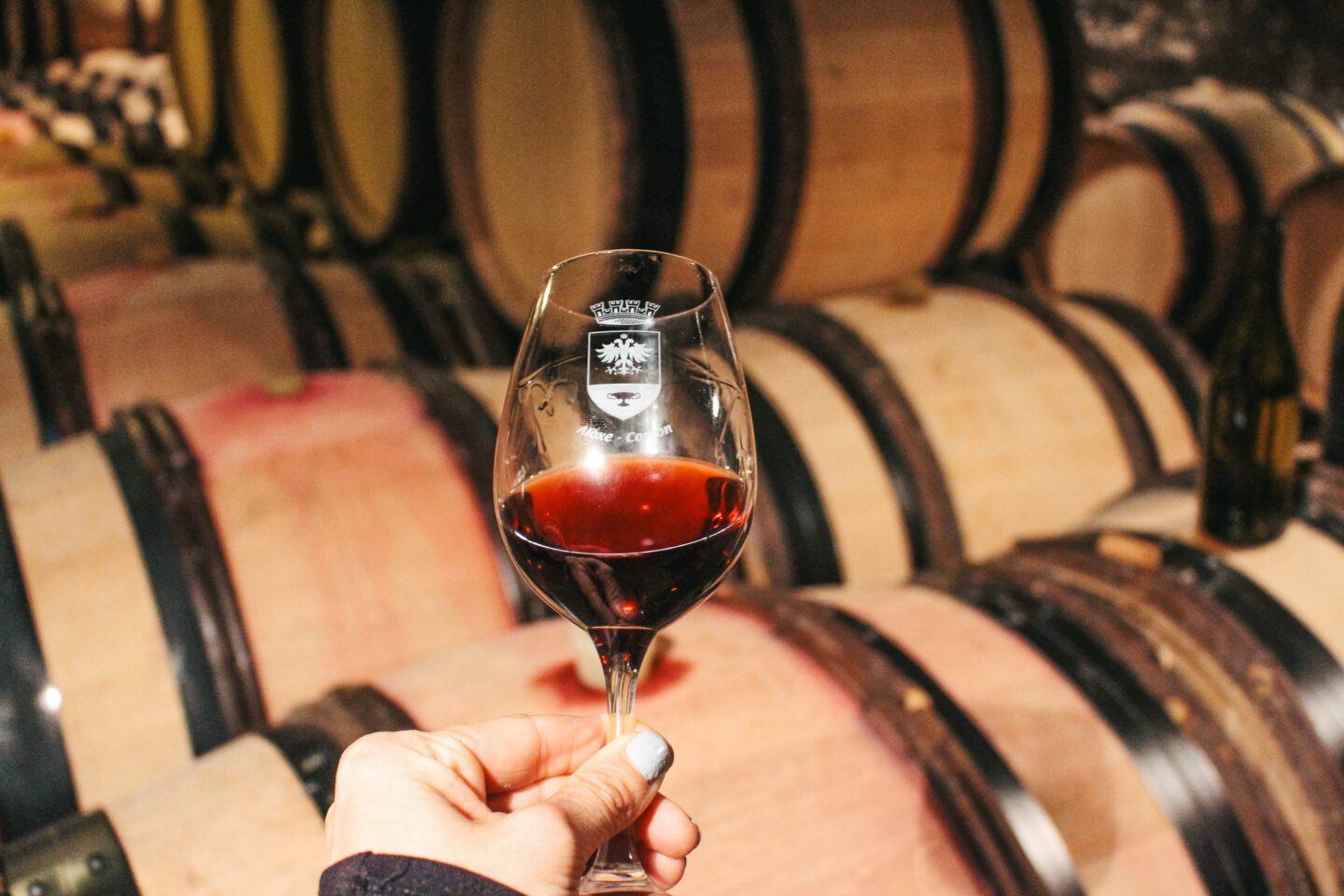
I hear this question all the time: “How do I move to France and work in wine?” It’s an adventure, but there’s no one-size-fits-all answer. If you’re considering making the leap, here’s some advice I wish I’d had before selling everything, moving to France and going all into wine.
1. Start by Asking Yourself the Big Questions
How long do you want to live in France? It’s okay if you don’t have a clear answer yet, but asking yourself why and what exactly you want to do will make the process so much smoother.
There’s a lot of “follow your dreams” talk out there, but it’s important to get specific. Do you want to:
- Become a winemaker?
- Work as a sommelier?
- Build a career in wine marketing, sales, or import?
Each of these paths requires a different approach. Take the time to reflect and research what fits your goals. Research each role, reflect and imagine what that day-to-day might be like for you.
Are you ready to navigate the immigration process required to live and work in France? I won’t dive too deep into this, but it’s important to understand there are different visas depending on what you want to do and how long you plan to stay. Taking the time to research your options and align them with your goals is key.
2. Learn the Language
This one is non-negotiable. When I moved to France, I spoke very little French and ended up stuck in an English-speaking bubble in Paris for a while. It wasn’t until I moved to Burgundy that I truly learned to speak the language—and that opened so many doors.
If you’re planning to be here long term or want to build a life in France, learning French must be a priority. Aim for at least B1/B2 level, focusing on oral comprehension and speaking. These are often the hardest skills to master when you’re learning outside of a French-speaking country, but they are essential for professional and personal integration.
I’m not a language teacher (there are others far more qualified to dive into this topic), but I’ll say this: get over the “I sound like a toddler” phase. Yes, you will, and that’s okay! Accept that it’s not your first language and keep going. It’s perfectly fine to say, “Can you slow down? This isn’t my first language,” and then continue the conversation.
The key is to focus on oral comprehension and speaking—listen as much as possible, practice daily, and don’t be afraid to make mistakes. That’s how you grow.


3. Credentials Matter (and So Do Transferable Skills)
In France, diplomas and formal qualifications carry significant weight. Depending on your path, it might make sense to study in France. For example:
- Winemaking or sommelier work? Look into French programs or program that have traveling winemaker or internship programs.
- Marketing, education, or communications? The WSET is globally recognized and widely available and will help you get into the door of the wine business because you will have a base level of wine vocabulary. The WSET is offered in multiple languages making it more widely known.
- Sales or imports? Combine wine knowledge with business skills, diplomas and certifications. That will go along way.
Having transferable skills from other industries can also give you an edge. Experience in marketing, accounting, law, or even fluency in multiple languages can open up opportunities. Think about how your existing skills could apply to the wine industry and highlight them when networking or applying for jobs.
If you’re considering applying for (Le contrat de travail à durée indéterminée – CDI), it’s helpful to have your degrees and credentials translated and / or validated. French employers are often unfamiliar with qualifications from other countries, so align your CV with what they expect. Research the French “CV” format and adapt yours to fit their standards.
Look for employment on French websites like: Vitijob, Emploi Vin, Emplois Vins and general employment sites like Indeed, Linkedin and Welcome to the Jungle.
If you plan to work as a freelancer or start a small business, make sure you understand the tax responsibilities and how to set up your “auto–entreprise“.
4. Prepare for Culture Shock
Living in France is as much about adapting to a new way of life as it is about building a career. French culture is rooted in tradition, the rhythm of the seasons, and (of course) the vine. It’s beautiful, but adjusting takes time.
Culture shock can be hard, but it’s also an opportunity to grow and widen your perspective. For me, moving from Paris to Burgundy was a turning point. In Burgundy, I learned the language, expanded my network, and discovered new opportunities.
5. My Journey: A Bit of Transparency
Over the past decade, I’ve taken on many roles—marketing, social media, education, sales, sourcing wines for import, prospecting, wine tourism. Each experience has shaped who I am today and how I approach my work. But the truth is, moving to France and building a career here requires more than just passion.
Two things changed everything for me: really speaking French and building a strong FRENCH network and community. At first, I didn’t speak much French, which kept me in an English-speaking bubble for longer than I wanted. Learning the language—and I mean really learning it, not just getting by—was transformative.
The other key was creating a network and integrating into a French community. In France, relationships are everything, and finding people who supported and believed in my work made all the difference.
It’s been a long journey, with plenty of challenges along the way. But it’s also been incredibly rewarding to see how those early hustles and grind moments shaped where I am today. Moving to France and working in wine is as much about persistence as it is about passion—and for me, it’s been worth it.

If you want to pursue a life in France and a career in wine, take the time to reflect on your goals, build your skills, and embrace the journey—challenges and all.
Need more advice on navigating wine, culture, and life in France? Subscribe to my newsletter or sharing this post. In doing so, you keep this blog ad-free.